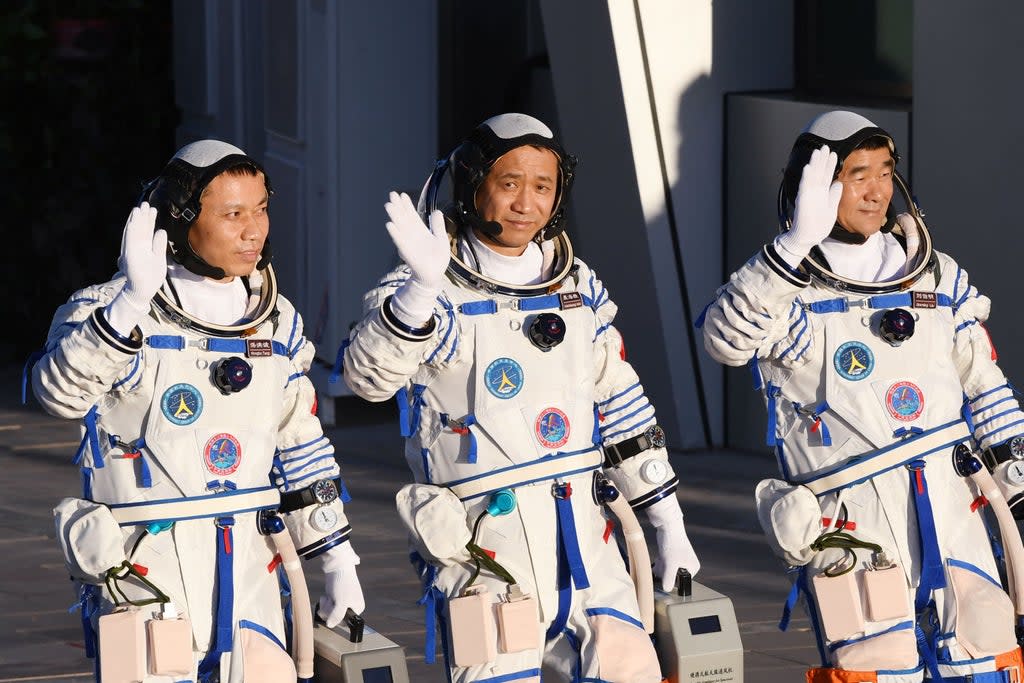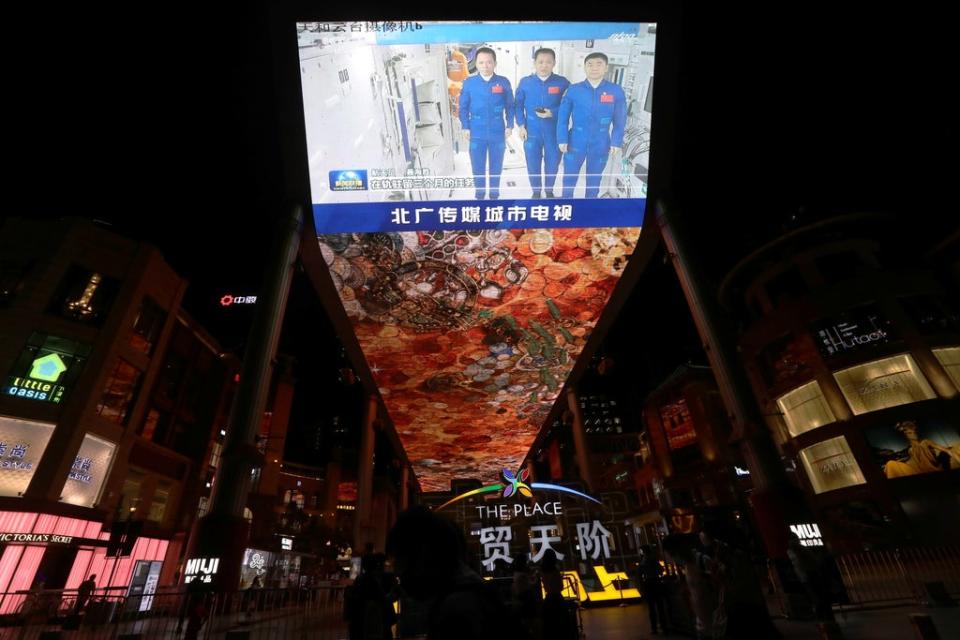China astronauts land in Gobi Desert after record 90 days aboard space station

Three Chinese astronauts landed safely on Earth after a record-breaking 90-day stay aboard their space station in China’s longest mission yet.
Nie Haisheng, Liu Boming and Tang Hongbo landed in the Shenzhou-12 spaceship in the Gobi Desert at 5.30GMT after having undocked from China’s first ever space station Thursday morning.
State broadcaster CCTV showed footage of the spacecraft parachuting to land where it was met by helicopters and off-road vehicles.
Minutes later, a crew of technicians began opening the hatch of the capsule, which appeared undamaged.

The three astronauts emerged about 30 minutes later and were seated in reclining chairs just outside the capsule to allow them time to readjust to Earth’s gravity after three months of living in a weightless environment.
The three were due to fly to Beijing on Friday.
“With China’s growing strength and the rising level of Chinese technology, I firmly believe there will even more astronauts who will set new records,” mission commander Nie told CCTV.
After launching on June 17, the three astronauts went on two spacewalks, deployed a 10-meter (33-foot) mechanical arm, and had a video call with Communist Party leader Xi Jinping.
While few details have been made public by China’s military, which runs the space program, astronaut trios are expected to be brought on 90-day missions to the station over the next two years to make it fully functional.
China’s space program has advanced at a measured pace and has largely avoided many of the problems that marked the U.S. and Russian programs that were locked in intense competition during the heady early days of spaceflight.
China embarked on its own space station program in the 1990s after being excluded from the International Space Station, largely due to U.S. objections to the Chinese space program’s secrecy and military backing.
Read More
Two killed in stabbing as police fire shots at ‘man with crossbow’
Climate change, drought and the march to war
Australia hits back at France over ‘stab in the back submarines’

 Yahoo News
Yahoo News 
